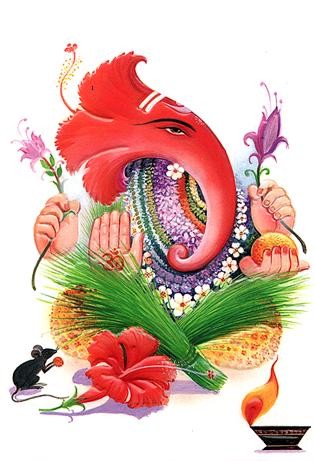Changing fashions in Telugu literature
C Mrunalini
Literature is a highly creative and intellectual process. However, does it also have a leaning towards “fashion”? Does it also succumb to something called “the in-thing to do” at a certain period or age?
Litterateurs may not like to admit it, but it is often true that literary production does take into consideration the mood, temper and taste of the age. I am not just referring to the “popular” literature. This tendency is true of any literature. Just as literature has its “dos” it also has its “don’ts” where content and form are concerned.
Given this situation, it is not surprising that certain genres of writing simply seem to vanish, leaving a vacuum in the literary arena. The one genre that is slowly becoming an endangered literary species in Telugu is the “psychological novel”.
There was a time in Telugu (from the late forties to the early sixties of 20th century) when every writer tried his (or her) hand at this genre. Freud and Adler being favourites of the novelists, all sorts of human behaviour were touched upon. Looking into the minds of people with great sympathy and understanding, and trying to find causes for the disorder of a human mind had become the passion of the Telugu novelist.
Litterateurs may not like to admit it, but it is often true that literary production does take into consideration the mood, temper and taste of the age. I am not just referring to the “popular” literature. This tendency is true of any literature. Just as literature has its “dos” it also has its “don’ts” where content and form are concerned.
Given this situation, it is not surprising that certain genres of writing simply seem to vanish, leaving a vacuum in the literary arena. The one genre that is slowly becoming an endangered literary species in Telugu is the “psychological novel”.
There was a time in Telugu (from the late forties to the early sixties of 20th century) when every writer tried his (or her) hand at this genre. Freud and Adler being favourites of the novelists, all sorts of human behaviour were touched upon. Looking into the minds of people with great sympathy and understanding, and trying to find causes for the disorder of a human mind had become the passion of the Telugu novelist.
This passion resulted in quite a few masterpieces — అసమ్ర్థుని జీవయాత్ర (Asamarthuni Jeevayatra) (T Gopichand), అల్ప జీవి (Alpa Jeevi) (Rachakonda Viswanatha Sastry), చివరకు మిగిలేది (Chivaraku Migiledi) (Buchibabu), కీలుబొమ్మలు (Keelubommalu) (G V Krishna Rao), ఆత్మ బలి (Aatma Bali) (Sripada Subrahmanya Sastry), ఒకే రక్తం (Oke Raktham), ఒకే మనుషులు (Oke Manushulu) (Kommuri Venugopala Rao), హిమజ్వాల (Himajwala) (Vaddera Chandidas) and సరద (Sarada) (C Anandaramam) to name a few. However, by the 1980s, this genre slowly started disappearing from the main stage, leaving it to a very few writers such as Kasibhatla Venugopal (who is still faithful to it) to keep it alive.
The immediate reason for this drift is the emergence of extremely strong, idealistic and absolutely essential literary movements, which stemmed out of inequalities and marginalisation in all spheres of life. The feminist, dalit and regional movements in Telugu literature brought about a social realism that left no scope for the writer to dwell on the mind of an individual.
Movements celebrate the voice of masses, the anguish of groups, the sentiments of victims and collective behaviour instead of the thought processes of one human being. When there is a strong argument for a social and cultural cause, experimental writing (which is what psychological novels are generally referred as) naturally takes a back seat. It is now no longer the “in-thing” to write a psychological novel; a novel that looks into the deep layers of the human mind as against the root causes of a whole social and cultural system may not be really welcome.
However, somewhere, at some point of time, even amid the collective protests of victimised groups, one needs to look deeply and carefully into one’s own self, to understand the truth of life. Maybe when creativity shakes away the shackles of “literary correctness”, the psychological novel will emerge again.
C Mrunalini is a well-known writer of short stories, a translator and a critic
mrunalini8@gmail.com
Courtesy: NewIndPress
Movements celebrate the voice of masses, the anguish of groups, the sentiments of victims and collective behaviour instead of the thought processes of one human being. When there is a strong argument for a social and cultural cause, experimental writing (which is what psychological novels are generally referred as) naturally takes a back seat. It is now no longer the “in-thing” to write a psychological novel; a novel that looks into the deep layers of the human mind as against the root causes of a whole social and cultural system may not be really welcome.
However, somewhere, at some point of time, even amid the collective protests of victimised groups, one needs to look deeply and carefully into one’s own self, to understand the truth of life. Maybe when creativity shakes away the shackles of “literary correctness”, the psychological novel will emerge again.
C Mrunalini is a well-known writer of short stories, a translator and a critic
mrunalini8@gmail.com
Courtesy: NewIndPress



3 Comments:
gr8 article by C.Mrunalini..
learnt a lot many things by reading this 1...
keep up with the gud work...
Thaanks for this
supreme clothing
off white clothing
golden goose outlet
supreme new york
supreme new york
kd12
hermes birkin bag
kyrie shoes
kd 15
off white shoes
Post a Comment
<< Home